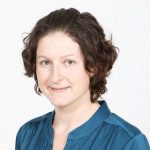March 22, 2022
Join us for the next Starting a Conversation with Professor Bryony Onciul from 12:00 to 1:00 pm, Thursday, March 10, 2022.
This will be a hybrid event. Join us in person in Arts 368, or email: icer.ok@ubc.ca for the Zoom link.
Abstract:
Dr Bryony Onciul will present an overview of her new AHRC Fellowship project Renewing Relations (2022-23) and how it builds upon her previous research on climate change, heritage, colonial history, and Indigenous rights in Canada, the South Pacific, and UK.
Renewing Relations project focuses on the importance of (re)connections and (re)newing relations within and across groups, forms of heritage, places, practices, and wider kinship groups. It highlights the role of ecosystems and environment in maintaining and sustaining heritage and upholding Indigenous rights.
The project considers what the Declaration on the Rights of Indigenous Peoples Act (DRIPA) means for Indigenous communities, heritage bodies, and environmental stewards in practice in BC. How it relates to the history of BC, and asks how it is shaping new approaches and relationships, and what barriers remain. The aim is to improve understandings of the relationships between heritage, environment, kinship, and decolonization.
Bio:
Bryony Onciul is an Associate Professor in Museology and Heritage at the University of Exeter. She is the author of Museums, Heritage and Indigenous Voice: Decolonizing Engagement, and co-editor of Engaging Heritage, Engaging Communities. She co-designed and directed the Postgraduate Programme International Heritage Management and Consultancy at UoE. Bryony founded the UK Chapter of the Association of Critical Heritage Studies (ACHS), and is a member of the international Executive Committee. Bryony is currently in Canada, a Visiting Professor at UBC, delivering her Arts and Humanities Research Council Fellowship Renewing Relations: Indigenous Heritage Rights and (Re)conciliation in Northwest Coast Canada.
Meet n’ Greet
Professor Onciul is a visiting scholar who would like the opportunity to meet students, staff and faculty with shared research interests and learn about their work. If you can’t make the talk, please join us in person in Arts 368, 11:30 to noon and 1:00 to 1:30 pm on March 10.
Posted in Event, News, Starting a Conversation, Uncategorized
March 16, 2022
March 24,
Noon to 1 pm
WATCH LIVE
Abstract
How do we bring community engaged methods to digital spaces? How can we approach community when participants are digitally and geographically dispersed? What does it look and feel like to work with vulnerability in a pandemic? In this conversation, I take these questions as starting points to share my experience of threading community engagement through digital ethnographic research. Situating access as a method, I will share reflections about how community engagement offers an opportunity for digital research methods to be designed in a manner that is responsive to participants and communities. I suggest that, as a method, participant-led access is a deeply collaborative and political act because it creates the conditions for diverse bodies and minds to be present, whole, and well within a given space and time. At the heart of this dreaming and reflecting is a desire for accessibility and disability justice to be modalities that disrupt systems and spaces that too often ignore, devalue, and erase nonnormative bodies and minds within research.
Bio
Madelaine is an interdisciplinary graduate student at UBC, Okanagan. Through ethnography, Madelaine studies the intersections of visual, material, and digital culture with an emphasis in sensory knowledges and community-engaged methods. Her current research addresses gaps in digital accessibility by seeking to understand how individuals and organizations are collaborating to encourage more equitable access for/with people with disabilities. While Madelaine is currently non-disabled, she navigates the world with complex trauma and multiple forms of chronic pain that influence her daily physical, mental, and emotional capacities. As a queer and feminist scholar, this embodied lived experience is central in her research, writing, and living. In her free time, you can often find Madelaine with her partner and their many multispecies collaborators including their cat Sage and dog Harry.
Posted in Event, News, Starting a Conversation, Uncategorized
March 15, 2022
Join us for the next Starting a Conversation talk with MA candidate – Adam Kunis on Thursday, March 14, 2022, from 12 noon to 1pm.
The goal of this research is to understand how tourism destinations were affected by COVID-19. This research took place in Canada’s Thompson Okanagan, an important tourism region in British Columbia’s Interior. In this region, the natural environment lends itself well to outdoor recreation which provided a socially distanced safe alternative to other tourism activities.
The researchers partnered with the Thompson Okanagan Tourism Association to interview regional adventure tourism organizations to better understand how they were impacted by COVID-19, how they were dealing with the challenges from the pandemic, and the support needed from the government and community. This research highlights the importance of local markets for tourism destinations, value network relations, and the adventure sector’s unique approach to pandemic adaptation and innovation.
Bio:
Adam Kunis is a graduate student at the University of British Columbia Okanagan in the Interdisciplinary Sustainability program. Passionate about adventure recreation and travel, he has visited adventure tourism destinations across the world giving him a unique insight and understanding of the industry. When COVID-19 disrupted the tourism industry, he was keen to understand the impact of the pandemic on adventure communities and assist adventure communities in their recovery.
Pls note this will be a hybrid event. Join us in person in Arts 368, or on-line via Zoom .
Posted in Event, News, Starting a Conversation, Uncategorized
February 15, 2022
12:00 to 1:00 pm
Join Zoom Meeting
https://ubc.zoom.us/j/65652630418?pwd=VTNSdFYvSXhHNmdQOUlkT3Qydk5Vdz09
The education of attention and perception takes time and repetition. Corrugation, as defined here, is a dance between attention, memory, and the passage of time: experience folds into ideas folding into experience. I will speak to my experience of corrugating relations in some of the riparian habitats of the Okanagan and Similkameen watershed, where for one year I intentionally cultivated an attentional practice. It is my belief that in order to conduct research in a given habitat/community/context a researcher has the obligation to come into relation with and in the bounds of that research space. This presentation is a representation of how I tried to do that.
Madeline Donald was born an uninvited guest on Coast Miwok territory and raised a traveler. She is a daughter, partner, friend, co-thinker/dreamer, and 3rd year PhD student presently living as an uninvited visitor in and with the Okanagan watershed in unceded Syilx homelands. Her current research is grounded in relational research methodologies and saturated by the riparian habitats of the Okanagan watershed. Living with narcolepsy, Madeline actively questions and counters temporally inaccessible expectations for academic labour.
Starting a Conversation is an informal discussion series open to everyone.
Posted in Event, News, Starting a Conversation, Uncategorized
November 22, 2021
Please join us for the next Starting a Conversation discussion series!
These noon hour discussions are an informal opportunity for presenters and audiences to explore a variety of topics and works-in-process. Everyone is welcome!
To receive the Zoom link, please email: icer.ok@ubc.ca
Abstract:
Homelessness is growing in smaller cities across Canada. Planning to tackle homelessness is increasingly prevalent, but we know little about how the service sector in smaller Canadian cities strategize and addresses homelessness with limited funding and capacity. This lack of knowledge at both the academic and community level means agencies and stakeholders in smaller communities have limited resources in mitigating homelessness. Using a community-engaged research methodology, my research explores the optimal ways of ending and managing homelessness in smaller Canadian cities using Vernon, BC, as a case study. My research aims to investigate how Vernon’s social service sector has organized to address homelessness, to provide other smaller Canadian cities with a set of best practices in mitigating homelessness with limited funding and capacity. My research will fill the knowledge gap by examining the challenges and successes of developing homelessness policies in smaller Canadian cities with a population size of less than 50,000.
Bio:
Bethany is in the second year of her MA in Community Engagement, Social Change, and Equity at UBCO. She also holds a BA in Communication Studies from Wilfrid Laurier University. Prior to her graduate studies, Bethany was an Academic Program Assistant at the University of Guelph where she worked alongside faculty and grad students in the School of Languages and Literatures.
Bethany relocated to the Okanagan in the fall of 2020 for her graduate studies at UBC. She connected with the Social Planning Council for the North Okanagan at the beginning of her studies, who became a key community partner in her research. Through this partnership, Bethany collaborated with the social service sector in Vernon to better understand how they have organized to address homelessness in the community.
Her goal is to destigmatize homelessness by bringing awareness to the perils and causes of this social issue and advocate for the policy changes needed to address the growing problem of homelessness in smaller Canadian cities.
Posted in Event, News, Starting a Conversation
November 22, 2021
Wednesday, December 1, 2021
7:00 pm
Climate Change, Urban Sprawl, Habitat Destruction, Sedentary Lifestyles …
These issues and many more are connected to our land use choices, and those choices are heavily influenced by the way we build and manage our transportation infrastructure. Kelowna is in the final stages of developing its transportation master plan, a plan that is a critical part of addressing these issues.
Join The Kelowna Sustainability Coalition and ICER to hear from three experts on how the proposed TMP intersects with the important values provided by our landscape and
environment here in Kelowna.
To register for this Zoom event email: icer.ok@ubc.ca
 |
Transportation Success Stories with Radical Results
Gord Lovegrove, Associate Professor of SMARTer Growth, UBC School of Engineering
SMARTer Growth Partnership |
 |
Housing Impacts
Andrea Craig, Assistant Professor, Economics, Philosophy and Political Science, UBCO
Urban Economist |
 |
Kelowna’s Transportation Plan: Visions and Realities
Peter Truch, Senior Transportation Planning Engineer and Small Business Owner
Kelowna, BC |
This will be a Zoom event, moderated by Dr. John Janmaat, and with a Q & A session.
Everyone is welcome to attend.
Posted in Event, News, Uncategorized
April 9, 2021
How do shame and social support impact depressive symptoms for people living with chronic pain?
Wednesday, April 21,
12 Noon – 1 pm
Please join us for the next Starting a Conversation discussion series! These noon hour discussions are an informal opportunity for presenters to and audiences to explore a variety of topics and works-in-process. Everyone is welcome!
Please register via icer.ok@ubc.ca to receive the Zoom link.
Abstract
Approximately one in five adult Canadians lives with chronic pain. Sixty percent of those with chronic pain also experience depression. Depressive symptoms related to pain increase with experiences of social invalidation, such as discounting the legitimacy of one’s pain, yet little is known about the affective mechanisms that link invalidation to harmful mental health outcomes. This study is the first to investigate shame as an affective pathway through which social invalidation can lead to depressive symptoms in the context of chronic pain. It also examines whether social support can protect against these harmful effects. As the first study carried out in partnership with The Bill Nelems Pain and Research Centre (BNPRC), the largest pain clinic in the BC Interior, this project involved developing and implementing the clinic’s research infrastructure, which can be used for future studies with pain populations in the Okanagan. By exploring how patients with pain seek and access formal and informal social support and what kinds of support they find most and least helpful (e.g., online forums, peer support groups), this work highlights peers with pain as an important but understudied resource of support to mitigate feelings of shame. Results will help to identify whether shame poses a promising treatment target for individuals with pain and inform psychotherapeutic and support group services within the network of BC community pain clinics associated with BNPRC.
Bio
Alanna Coady is currently completing her MA in Clinical Psychology at UBC Okanagan. Her research focuses on moral emotions as affective determinants of health, linking social relationships to mental and physical health outcomes. She is interested in research that can be translated into effective treatment services for those coping with chronic illness. Her work is supported by SSHRC and the Institute for Community Engaged Research.
Posted in Event, News, Starting a Conversation
March 17, 2021
Be our videographer this summer!
Deadline: April 16, 2021
The Institute for Community Engaged Research (ICER) has a Work Study opportunity this summer with our University / Community Video Speed Dating project.
Details:
May 1 – Aug.30
20/hrs / week (340 hrs total)
$20/hr
The project:
Working with the ICER director and coordinator, and under the mentorship of UBC Studios Okanagan, the student will contribute to part 1 of this project and work on background research and video profiling:
1A). The student will conduct physically-distanced video interviews with representatives from fifteen Okanagan-based community organizations to profile their work and identify their research needs.
1B) The student will produce short video bios of fifteen ICER members, these will highlight their current research interests and areas of expertise. These ICER member videos will sit on the institute’s website and be used in social media to introduce and connect researchers, students and potential community partners.
The student will be supervised by ICER Director, Dr. Jon Corbett, and ICER Coordinator, Joanne Carey and will be further mentored in the technical aspects of video production by our partner in this project UBC Studios Okanagan. The student will be responsible for co-planning, conducting and editing the video interviews. NB: The student’s safety will be paramount, and the style and design of the video will depend on best safety protocols at the time. For example, instead of face-to-face interviews, the videos could include the use of stock photos, audio, and video media.
Qualifications:
Ideally, the student will have some video, audio and/or photography experience. The student should be comfortable with operating and maintaining the technology and be willing to learn new skills as required. The student must be an upper level undergrad or graduate student with excellent coordination and communication skills (i.e. be willing to state needs and ask for more information). To be a great fit for this position, the student must have a genuine curiosity about community engaged research and a willingness to work with ICER’s community partners. They will need an enthusiasm for meeting new people, and discovering and sharing stories. They must be confident enough to contact new people, set them at ease in front of a camera and converse openly. Time management and collegiality are also key attributes.
To apply:
Follow the steps on the UBC Okanagan student & alumni career board.
If you know a student who would love this job, please share this opportunity with them.
Any questions? Please email icer.ok@ubc.ca
|
Posted in Event, News, Uncategorized
January 26, 2021
Join us on Tuesday, Feb.9, from noon to 1 pm for our next Starting the Conversation discussion. This will be an online Zoom event, so please email icer.ok@ubc.ca to register.
The question for discussion: Can food foraging offer avenues for advancing community cohesion?
Abstract
The practice of harvesting wild plants and fungi is an integral part of the health, culture and economy of Whitehorse, Yukon. In a 2017 municipal survey of residents, almost 60% of respondents indicated securing a portion of their food from foraged sources (City of Whitehorse 6) . Yet, strategies for the protection of wild harvest are seldom addressed in local food and land planning. Drawing on the methods of community-based research, my project examines the impact of omitting harvest from planning and what it would mean to chart a new course. In partnership with Kwanlin Dün First Nation, I asked: how the regions ongoing legacy of colonization has shaped its resident’s relationship to the practice of wild harvest and to each other, and; what tensions and opportunities exist within the convergence and divergence of Indigenous and non-Indigenous foodways? Our research reveals that decision to exclude harvest not only harms northern and Indigenous food security but exasperates conflicts around wild resources and spaces rooted in colonial and patriarchal power dynamics. However, it also demonstrated that wild harvest supports have the potential to advance community cohesion. With this, we set out to explore food solutions that better account for the region’s unique geographical, political, historical and cultural landscapes. My presentation will dive into these findings, with the aim of ‘starting a conversation’ around what it means to confront injustice and promote well-being through food and land planning.
Bio
Kelly researches within the Traditional Territories of Kwanlin Dün First Nation and Ta’an Kwäch’än Council and ancestral lands of Tagish Kwáan, in a region known locally as Chu Lin, but widely recognized as Whitehorse, Yukon. To the Indigenous Peoples of the area, she is recognized as Guch’an meaning ‘people of the clouds’, indicating that she is a settler in the region.
In 2017, Kelly received a Bachelor of Arts in Cultural Studies, from UBCO. Following graduation, she successfully applied for the Jane Glassco Northern Fellowship. As a Fellow, her research focused on the ties between food security and regional identity. Her desire to build on this research, led her to pursue a Master’s in Community Engagement, Social Change and Equity. In the spring of 2020, she received an ICER scholarship, along with funding from SSRCH and the NSTP in support of her work.
Posted in Event, News, Starting a Conversation, Uncategorized
January 19, 2021
Join us on Thursday, Jan.21, 2021 from noon to 1 pm for our first Starting the Conversation of the year. This will be an on-line discussion, so please email icer.ok@ubc.ca to register for a link.
The question for discussion will be: How can we effectively engage our Okanagan communities in climate action?
Abstract:
In order for government at all levels to take the actions needed to address urgent and ambitious climate targets, a broad social mandate is necessary – one that reaches across divides to avoid political polarization. To achieve this mandate, government, civil society, and other actors need to invest in higher quality and quantity of public engagement on climate change. These efforts need to be tailored to the particular community that is being engaged. In this ‘Starting A Conversation’ event, Mary will outline what constitutes effective climate engagement at the community level, drawing from the research evidence base as well as her experience in training and implementing a climate ambassador program in collaboration with the City of Vernon, where over 30 ambassadors were trained to reach out to their particular community networks, ultimately reaching over 1000 people (and counting).
Bio:
Mary, a Lecturer in Human Geography at UBCO, has made addressing climate change her central concern. She recently returned from living in the UK on sabbatical leave (2019-2020); while there, she volunteered as coordinator of videographers a two week Extinction Rebellion event in London last October, and began her current part-time work at Climate Outreach in Oxford as project manager for an ambitious international project called the Climate Engagement Initiative. Locally, she has acted as Co-Chair for the Climate Action Advisory Committee (CAAC) of the City of Vernon, who have just released a draft Climate Action Plan for community engagement.
Posted in News



